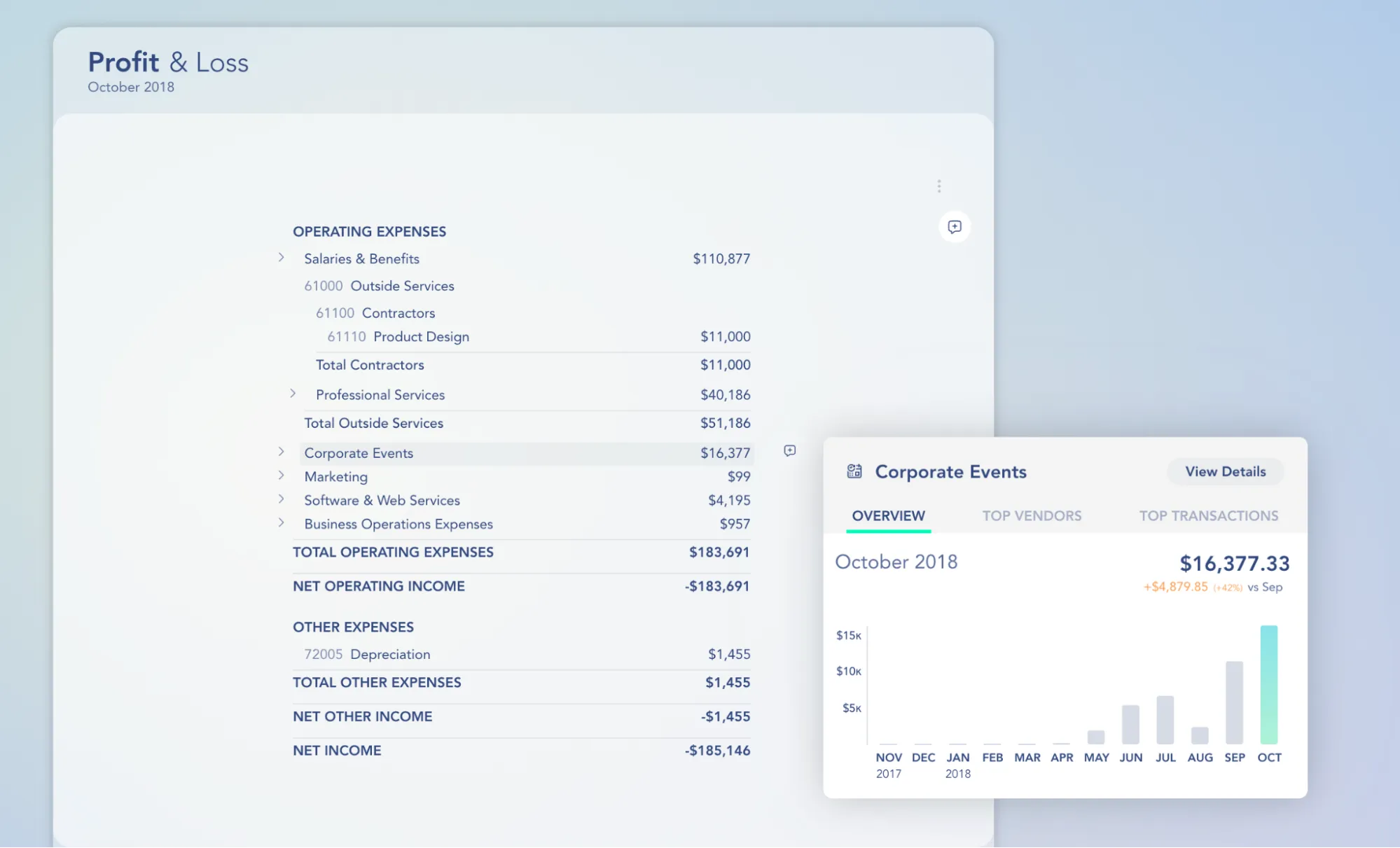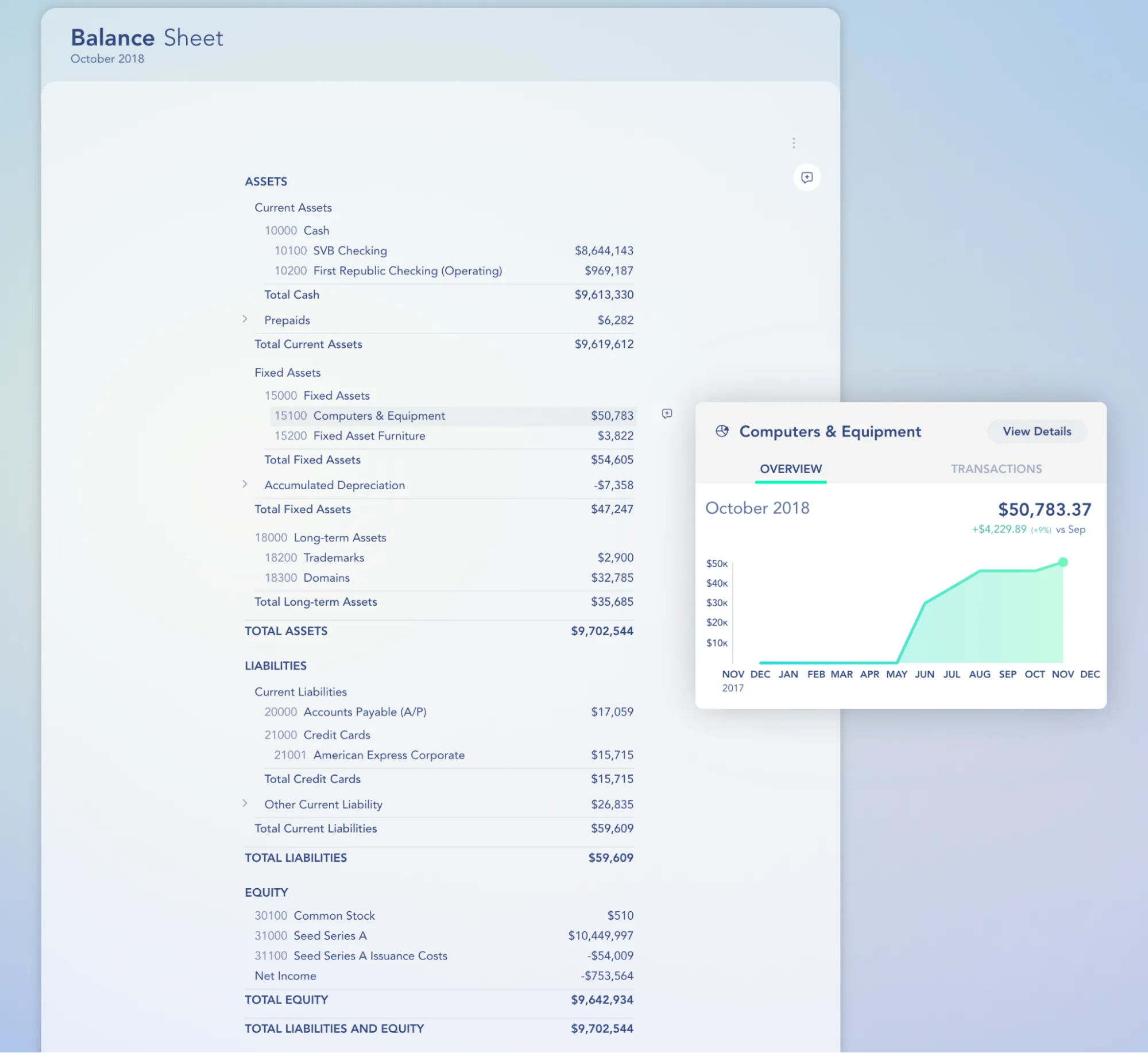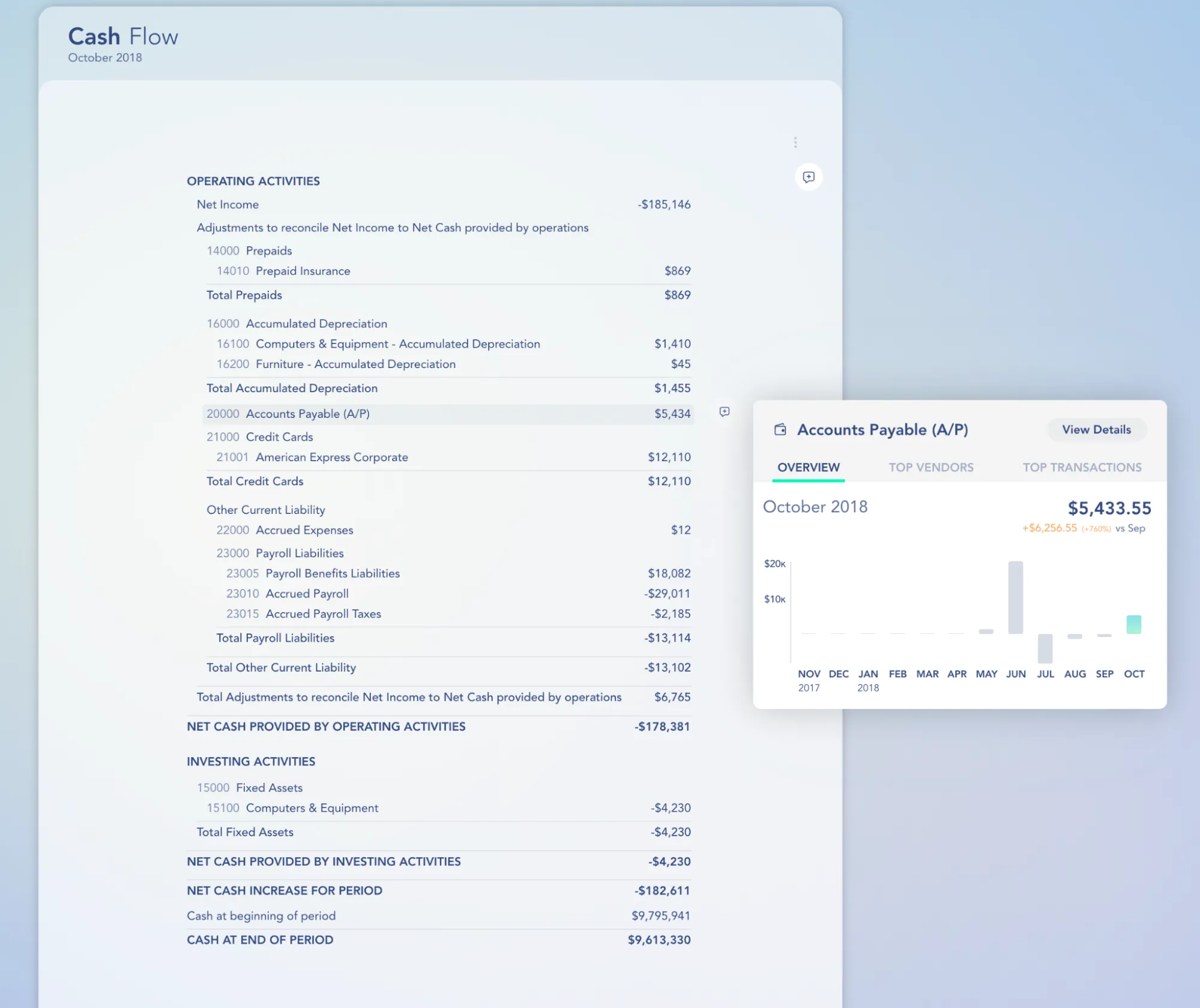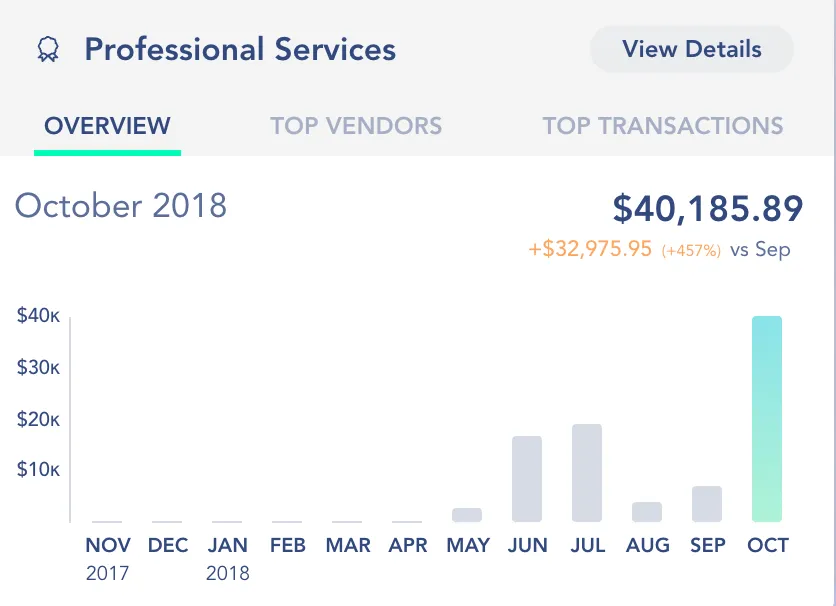As a founder, there are going to be a lot of things that require your attention. From the infancy of your company, you are going to be stretched, but your time is precious, and is something you should look to protect. Things you will quickly realize are huge areas of time commitment are operating the business, managing payroll, monitoring expenses, etc. Things that don't necessarily contribute to pushing forward the initial product vision but are necessary and required for the business to survive.
Ultimately, there are very few things that are more important than making sure your company is fit on the financial and accounting operations side of the world from the very beginning. It will save you time now and well into the future. While also making things like your next raise much easier as you will have your numbers already at your fingertips.
If not done right, these things will limit your capacity to grow as a business as they will be integral to fundraising, and the lack of an accountant to lean on may also limit your ability to grow as a leader as you will be sucked into operations more and more.
An accountant's skills can help your startup establish great financial hygiene from an early stage. By creating a chart of accounts that makes sense for your business, they'll ensure all relevant data is pulled into your ledger, correctly classifying your transactions, and making sure your books are balanced. With this foundation in place, an accountant will take care of critical tasks like tax preparation, forecasting, financial reporting, and compliance with regulatory statutes, which are challenging and time-consuming for business owners to conduct themselves.
Zooming out, at the highest level, accountants can also offer strategic advice on business decisions like funding options, business expansion, and investment opportunities. Overall, a competent accountant can be a catalyst in a tech startup's financial health, strategic direction, and long-term success.
What Can Go Wrong Without an Accountant?
It is not a matter of if financial turbulence will happen, it is when. Where's June's financial statement? What's our runway? Do we have enough money to make payroll? Should we think about raising another round?
Without an accountant, managing complex financial tasks becomes the business owner's responsibility. The owner must then navigate financial planning, tax preparation, payroll, and company audits on their own. These tasks require not only colossal amounts of time but also in-depth knowledge of accounting principles and tax laws. Any error, even if inadvertent, can lead to substantial fines from regulatory bodies or worse – legal repercussions.
Tax Preparation
It is tempting to assume that a small startup’s financial matters are straightforward and easily manageable, and therefore choose to handle tax preparation internally.
However, as tax season comes around, it will likely become evident that the startup is in over their heads. Without the expertise and knowledge of an accountant to navigate the complexities of tax laws, deductions, and compliance requirements, they will find themselves floundering in a sea of confusion and potential errors.
Not only will the startup risk penalties and fines for incorrect tax filings, but they may also face a significant drain on their resources as they scramble to rectify their mistakes. The time and effort spent on trying to fix their tax woes will detract from their core business focus and hinder their ability to drive growth and sustainability.
Ultimately, the lack of professional accounting guidance will likely prove to be a critical misstep. As financial mismanagement will lead to a loss of credibility with investors and partners, damaged reputation in the industry, and ultimately may contribute to failure to survive in the competitive market.
Important 2024 Tax Dates
- Jan 15 - Federal Quarterly Estimated Tax 4th installment (fourth quarter 2023).
- Jan 31 - 1099-NEC for non-employee compensation must be filed with the IRS and furnished to contractors
- Jan 31 - W-2 forms must be sent, either electronically or physically, to your employees for the previous tax year (2023)
- Feb 28 -1094-B, 1095-B, 1094-C, and 1095-C filings are due
- Mar 1 - Delaware Annual Franchise Report filing deadline
- Apr 15 - Sole proprietorship and single-member LLC tax returns on Schedule C with your personal income tax return (Form 1040) are due.
- Apr 30 - C-Corp startups can claim Research & Development Tax Credits on Form 94
- Jun 1 - Delaware Quarterly Estimated Franchise Tax. Pay 40% of the estimated annual amount (if annual amount is expected to exceed $5,000).
- Jun 15 - Federal Quarterly Estimated Tax 2nd installment (second quarter 2024).
- Jul 31 - Claim Research & Development Tax Credits on Form 941 .
- Sep 1 - Delaware Quarterly Estimated Franchise Tax. Pay 20% of your estimated annual amount (if the annual amount is expected to exceed $5,000).
- Sep 15 - Federal Quarterly Estimated Tax 3rd installment (third quarter 2024).
- Oct 15 - C Corp Form 1120 Tax Return final due date for C-Corp startups if extension was filed.
- Oct 31 - Claim your Research & Development Tax Credits on Form 941.
- Dec 1 - Delaware Quarterly Estimated Franchise Tax, Pay 20% of estimated annual amount (if annual amount expected to exceed $5,000).
Failure to Raise Funding
Imagine your startup delivering groundbreaking innovations and working towards ambitious growth plans. Eager to secure the necessary capital to fuel its expansion and carve out a significant market share, you want to raise venture capital funding.
Venture capitalists rely heavily on accurate and reliable financial information to assess your startup's financial health, performance, and projections. Without the expertise and oversight of an accountant to ensure proper financial management and reporting, your company's financial data may lack credibility and detail, raising doubts and concerns among potential investors.
The absence of an accountant may lead to inaccuracies in financial reporting and forecasting. Venture capitalists scrutinize your startup's financial statements, including revenue projections, expenses, cash flow, and profitability metrics, to evaluate the company's growth potential and investment viability. Inaccurate or incomplete financial reporting due to the lack of accounting expertise can erode investor confidence and make it difficult for your company to convey a clear and compelling financial narrative that resonates with investors.
Inadequate cash flow management can also pose a significant hurdle in securing venture capital funding for your company. Startups often experience cash flow challenges due to uneven revenue streams, high operating costs, and capital-intensive growth strategies. Without an accountant to analyze cash flow patterns, optimize working capital, and create robust financial forecasts, your company may struggle to demonstrate its ability to manage cash effectively and sustain growth, a critical consideration for venture capitalists assessing investment opportunities.
Moreover, the tech company's vulnerability to financial risks and compliance issues can deter potential venture capital investors. Without the oversight of an accountant to establish internal controls, monitor financial transactions, and ensure compliance with accounting standards and regulations, your company will face heightened risks of errors, fraud, and regulatory violations. Venture capitalists prioritize companies with sound financial governance and risk management practices, without the aid of an accountant it will be extremely challenging for your company to instill confidence and trust in potential investors, even if the products you are building are innovative and ahead of your competition.
Compliance & Legal
There are two areas where having an accountant on board will ensure that your startup follows all compliance and legal requirements correctly - payroll management and a potential IRS audit.
Managing payroll is an essential function for any business, but it can be especially challenging for startups who may not have the resources or expertise necessary to handle it effectively.
Here are some common pitfalls around handling payroll without the help of an accountant:
- Compliance issues: Payroll tax laws and regulations are complex and constantly changing. Without an accountant to stay up-to-date on these rules, a startup may inadvertently violate tax laws and face penalties as a result.
- Payroll errors: Calculating employee wages, deductions, and taxes can be complicated and prone to mistakes. Without an accountant to oversee the process, startups may make errors that result in over or underpaying employees, leading to dissatisfaction and potential legal issues. For example, learn more about per diem employees and expenses here.
- Cash flow management: We’ll dive deeper into this later when we talk about the benefits that hiring an accountant early on can provide, but first on the negative side… Payroll is often a company’s largest expense, and it’s crucial to ensure that there is enough cash on hand to meet payroll obligations. Without proper financial planning and oversight from an accountant, startups may face cash flow shortages that can disrupt their operations.
- Risk of fraud: Without proper internal controls in place, startups are vulnerable to payroll fraud schemes. An accountant can implement safeguards to prevent and detect fraudulent activities, protecting the company’s financial resources.
- Time-consuming administrative tasks: Managing payroll can be time-consuming and detract from other critical business activities. Without an accountant to handle payroll processing and administration, startup founders and staff may spend valuable time on tasks that could be better utilized towards growing the business.
Beyond payroll, there is no guarantee that your startup will get audited, but imagine your startup embarking on its entrepreneurial journey, full of ambition and innovation. As the company grows and evolves, it encounters the unavoidable reality of financial practices and accountability – the dreaded company audit.
Your startup's lack of proper accounting records becomes glaringly evident during the audit process. Financial documentation is disorganized, outdated, and incomplete, making it challenging to provide the necessary evidence and support for the company's financial activities. This deficiency in maintaining accurate and detailed accounting records raises red flags and leads to discrepancies that jeopardize the audit outcome.
Moreover, your startup's limited knowledge of accounting standards proves to be a significant hindrance. Without the guidance of an accountant to ensure compliance with established accounting principles and regulations, the company unwittingly misreports financial information. This oversight results in misstatements and errors that ultimately contribute to the audit failure.
Internal controls within your startup are also found lacking, leaving the company vulnerable to financial risks. Inadequate controls fail to safeguard the integrity of financial processes and data, increasing the likelihood of errors, fraud, and inconsistencies in financial reporting. This deficiency further undermines the startup's ability to pass the audit successfully.
Additionally, the misclassification of expenses becomes a stumbling block for your startup during the audit. The company struggles with accurately categorizing and recording expenses, leading to inaccuracies in financial statements. Without the expertise of an accountant to review and rectify these misclassifications, your startup presents flawed financial information that raises doubts and questions during the audit.
Ultimately, the absence of financial analysis and reporting expertise proves detrimental to your startup's audit performance. The company lacks the resources and know-how to conduct comprehensive financial analysis, identify trends, and prepare detailed financial reports. This deficiency hampers your startup's ability to provide the requisite information requested during the audit, further complicating the process and increasing the likelihood of audit failure.
Time Allocation Without an Accountant
If you are willing to take on the above risks and cover for them without the help of a professional accountant, you still need to consider the time commitment necessary to do this and the opportunity cost of that time. For a smaller, simpler company, you might spend around 10 to 15 hours per week doing basic bookkeeping tasks, such as recording transactions, invoicing, processing payroll, and managing cash flow.
However, when you add in more complex tasks like tax planning, filing returns, preparing financial statements, and business planning, you can expect to spend significantly more time, up to 40 hours per week - during busy periods like the end of the financial year.
Remember, as the founder, your focus should be on the strategic facets of the startup such as product development, recruitment, and growth planning. By having to spend hours on accounting tasks, you would be deviating from your core responsibilities, which could negatively impact your startup's growth.
Benefits of Bringing an Accountant On
Enough about the things that may go wrong for your startup if you choose not to partner with an accountant early on. Let us now focus on the ways that partnering with an accountant will enable your business to run smoother, help you make more informed decisions, and give you more time to focus on building the products that you are passionate about rather than spending time on financial nuances.
Financial Reporting
Accurate financial reporting is essential for the success and sustainability of a tech startup for many reasons. Among these, it will help inform strategic decision making, help with resource allocation and cost cutting, provide transparency and accountability, and support regulatory compliance. Before we go deep on these benefits, let’s first establish a bit more detail on what these most common financial reports are.
Income Statement
Also known as the Profit & Loss (P&L) report. This report provides a snapshot of the company's revenues, expenses, and profitability over a specific period (usually monthly, quarterly, or annually). It helps track your startup's ability to generate revenue, manage expenses, and achieve profitability.

Balance Sheet
The balance sheet presents your startup's financial position at a specific point in time, outlining its assets, liabilities, and shareholder equity. It provides insights into the company's liquidity, solvency, and overall financial health.

Cash Flow Statement
The cash flow statement tracks the flow of cash in and out of your startup during a specific period, categorizing cash inflows and outflows into operating, investing, and financing activities. It helps assess the company's ability to generate cash, meet financial obligations, and fund operations.

These three reports, when put together accurately and coherently, provide a detailed view into your business. They can give you, and all other stakeholders, a clear understanding of your company’s financial health and performance. In turn, this enables company leaders to make informed decisions regarding resource allocation, investment opportunities, pricing strategies, growth initiatives, and other critical aspects of the business.
Cost Cutting Example
For example, let's assume your startup is doing well and generating some initial revenue. You think the future is bright and would like to raise a round of funding in order to open the door for more marketing efforts and further growth. However, potential investors are telling you that they would like to see your revenue:cost ratio improve a bit before considering another funding round. You don’t really know whether cutting costs is feasible or where you would cut them. How do you approach this problem?
Your Profit & Loss report organizes expenses into various categories, such as salaries, marketing, technology infrastructure, utilities, rent, and professional services. By analyzing this report, you can identify the major expense drivers and areas where costs are disproportionately high relative to revenues. Further, you can compare these costs against industry benchmarks to see the ones that can reasonably be driven down.

Once you have identified a particular category ripe for cost cutting, how do you proceed? A good P&L report will allow you to drill into each category and get a vendor-by-vendor breakdown of the spend there. You can then use this information to identify highest spend vendors, compare to industry benchmarks, and either identify areas of unnecessary cost easily cut, or use this information to negotiate better deals with your highest spend vendors.
Additionally, distinguishing between variable and fixed costs, as you are able to do given the above reports, aids in prioritizing cost reductions, especially during revenue fluctuations or economic uncertainties. For example things like Rent, Salaries, and Loan Payments are all fixed costs, while things like Marketing, Advertising, Raw Materials, and Contract Labor are variable costs. During revenue fluctuation periods, it is much more likely that you’ll be able to intelligently reduce your total costs by analyzing variable costs and adjusting them appropriately.
Categorization and Labeling
Underpinning the accuracy and usefulness of above reports is the fidelity of low level data - individual transactions in your accounting ledger.

Transaction data can come from many different sources - checking accounts, credit card statements, point of sale systems, and expense report products just to name a few, and each of those sources may provide a different level of detail and semantic information about the transaction. Making sense of each transaction and correctly attributing it to an account within your Chart of Accounts is the bookkeeping task known as categorization.
Without categorization at all, or with inaccurate categorization, the above reports are fairly useless, or worse yet - completely misleading. An experienced and competent accountant will perform the following tasks to arrive at categorizations for your low level transactions:
Review each transaction and gather additional context as needed - attaching receipts, gathering information from third party systems, asking you, the business owner questions, as needed.
Evolve your Chart of Accounts to best suit the needs of your business and aggregation of your data ensuring that all transactions adhere to Generally Accepted Accounting Principles (GAAP).
Create general ledger entries as needed to make sure all accounts are fully balanced.
Perform periodic reconciliation to ensure that data in your ledger is consistent with third party data such as banks and credit card issuing companies.
Planning & Budgeting
Let’s assume that you have gotten this far, your accountant is ensuring the integrity of low level data - your ledger is balanced and consists of correctly categorized and documented transactions. On top of this, your accountant is generating informative and accurate reports. Of the many higher level tasks you and they are now well set up to execute, one is Planning and Budgeting.
An experienced accountant can develop comprehensive financial forecasts for your startup, projecting future revenues, expenses, and cash flows based on historical data, market trends, and growth projections. Financial forecasting assists startups in setting realistic financial goals, anticipating financial needs, and planning for long-term sustainability and growth.
Based on these forecasts, your accountant will work closely with you to create detailed budgets that align with your company's strategic objectives and operational plans. Budgets outline planned expenditures, revenue targets, and resource allocations, providing a roadmap for managing financial resources effectively and achieving business goals within set financial parameters.
This in turn opens the door for capital planning and cash flow management. Your accountant will help determine the optimal capital structure, financing options, and investment decisions to support the growth of your business. By analyzing funding requirements, assessing capital needs, and evaluating financial risks, accountants guide startups in securing adequate capital resources and funding sources for sustainable expansion.
Similarly, your accountant will develop cash flow projections, monitor cash inflows and outflows, and optimize working capital. By implementing cash flow forecasting, liquidity management strategies, and cash flow analysis, accountants help startups maintain financial stability, meet financial obligations, and seize growth opportunities.
Finally, these building blocks will allow you and your accountant to make informed and strategic decisions. For example, you’ll be able to assess risk and manage it based on your tolerance for it - investing in safeguards and mitigation strategies as appropriate. Further, you’ll be able to better navigate market uncertainties, and achieve sustainable growth and profitability.
Conclusion
Ultimately, we highly recommend that you partner with an accountant to help your startup on its journey of innovation and growth. How soon from the establishment of your company should you hire an accountant? Our recommendation is that if you have raised more than $500K or have more than 6 months of runway, you should be actively establishing a partnership with an accountant.
Why Digits?
Our goal at Digits is to provide you and your stakeholders with beautiful, intuitive reports, built on rock solid data. What is more, is that we intend to do so at a fraction of the cost of our competitors. How? Our US based accounting team is speed boosted by innovative AI software that allows them to perform categorization, labeling, and reconciliation faster than a fully manual approach, while our Transaction Review tool speed boosts their ability to gather information for transactions that are not immediately self documenting.
Further, given our experience of supporting many other startups we’ll be able to guide you through questions and decisions as they arise. For example, what bank accounts and credit cards are most suitable to support your company? How do you handle international hiring in a compliant and streamlined manner?
Interested in learning more? We would love to touch base with you! Sign up for a quick demo here.

